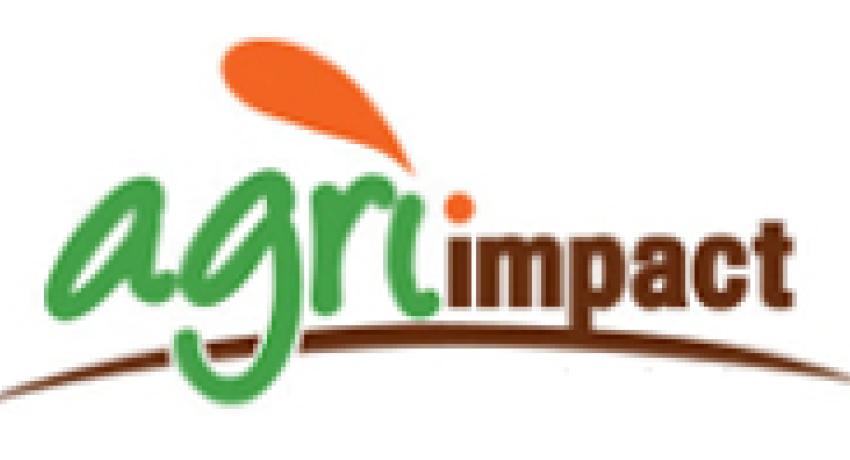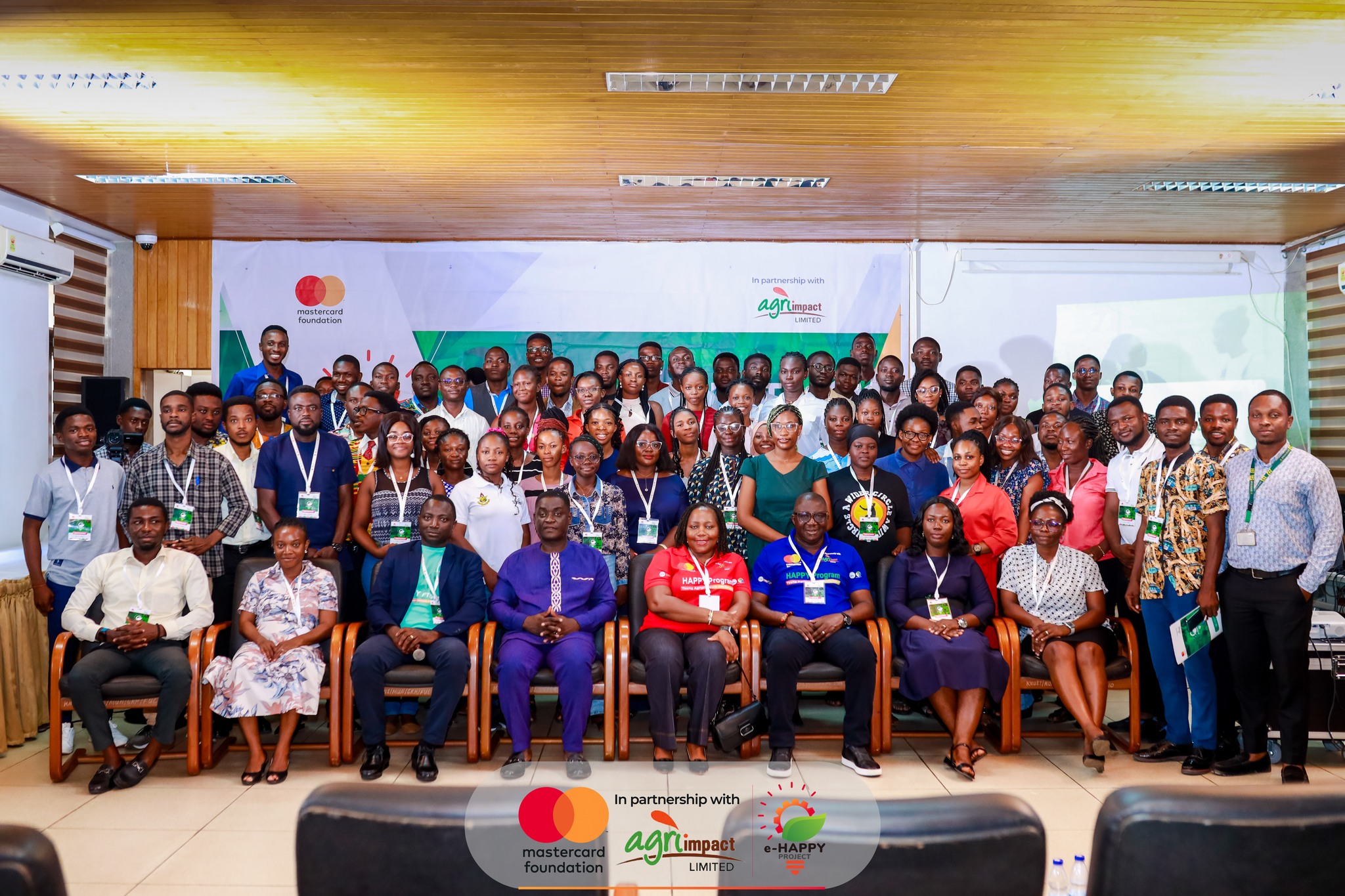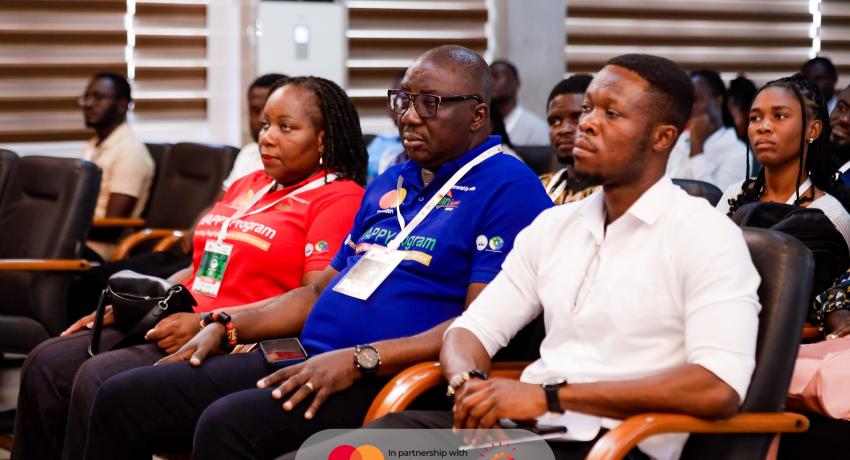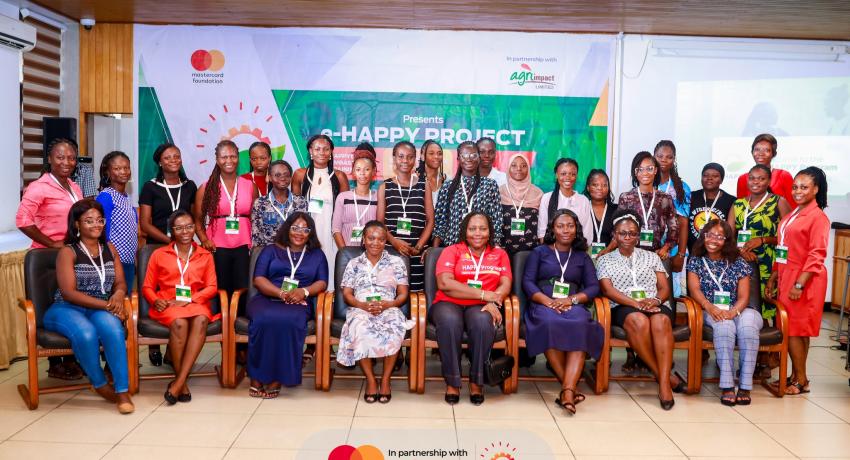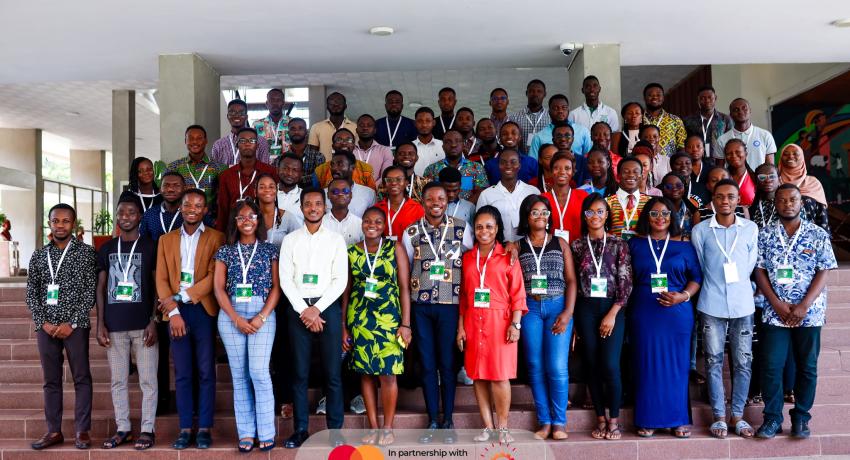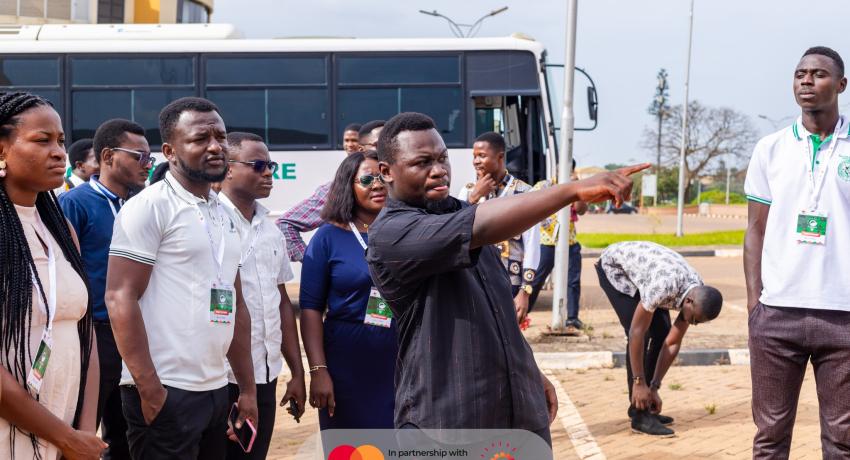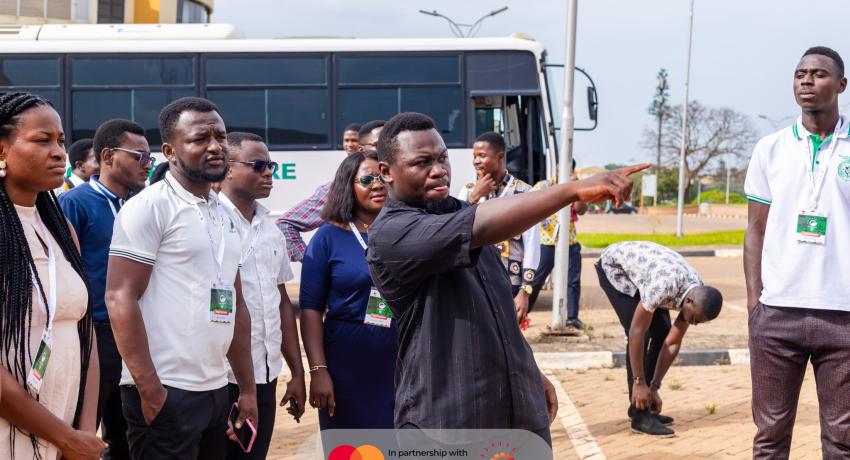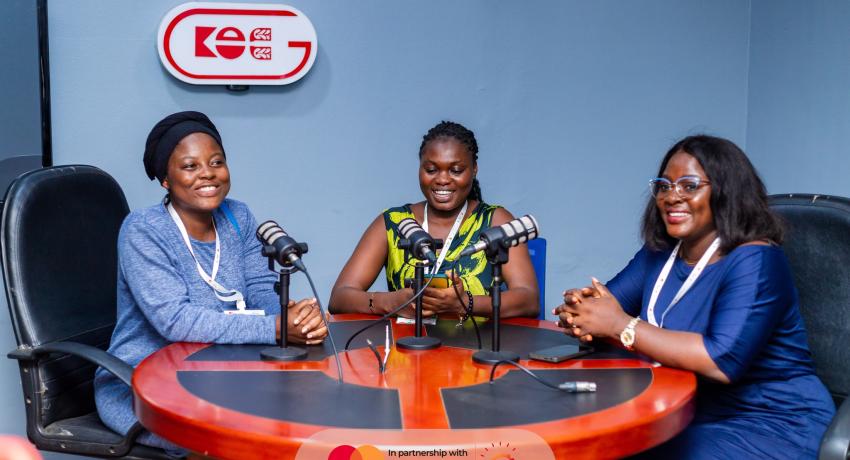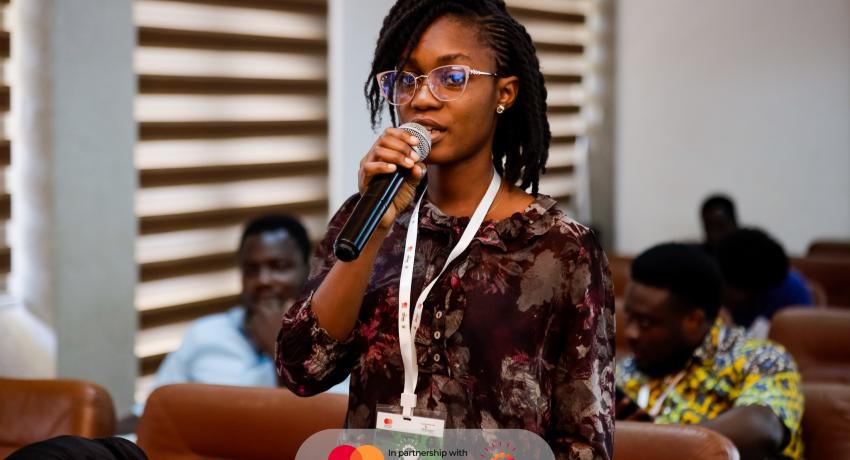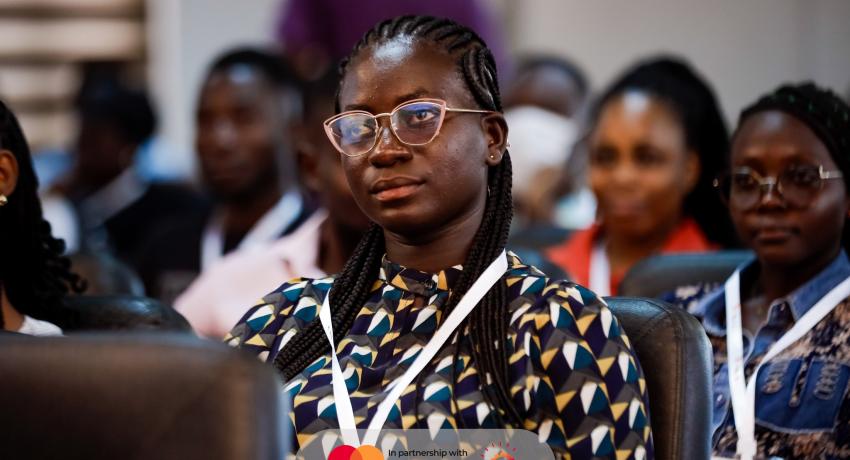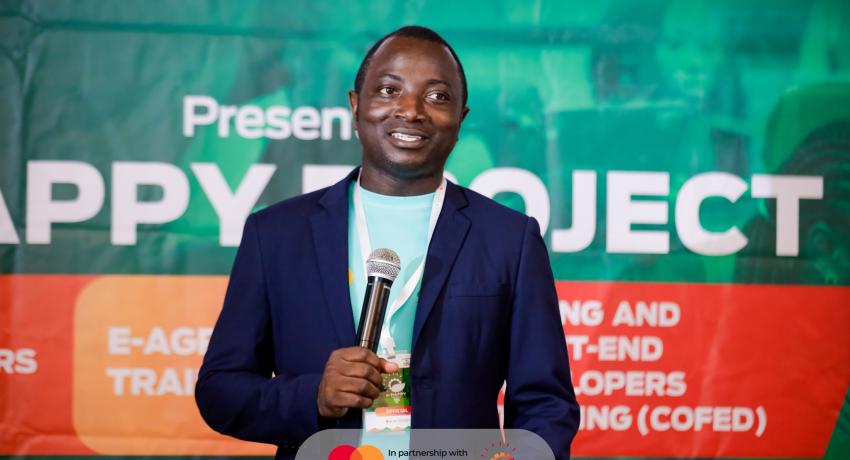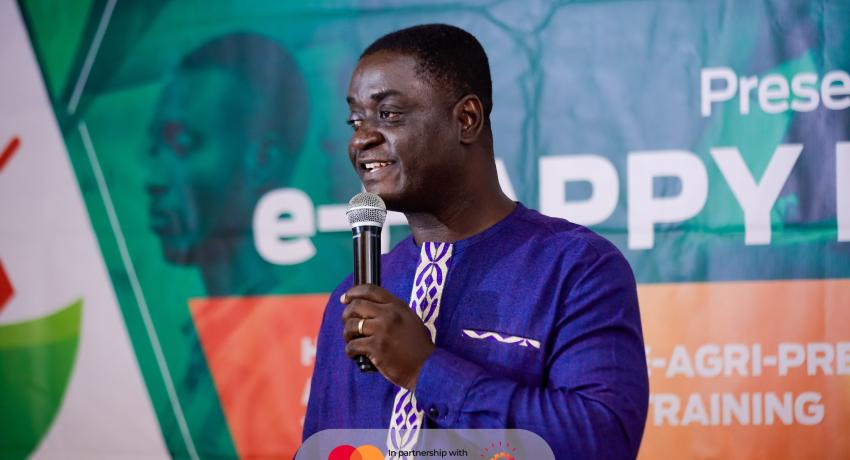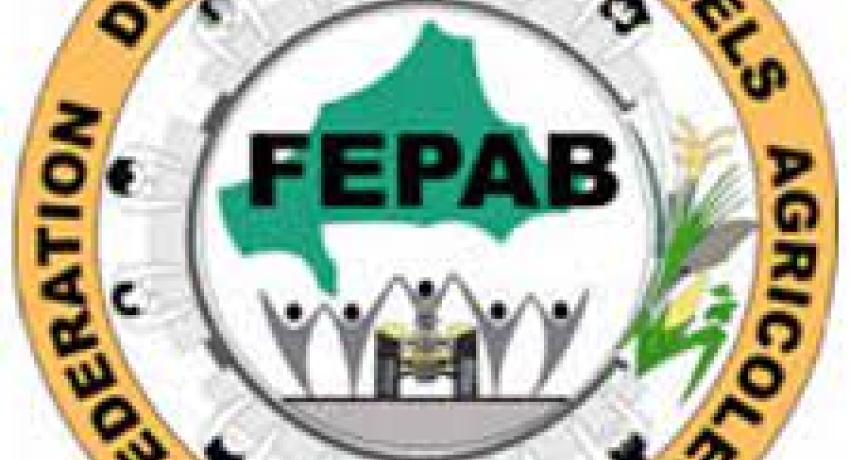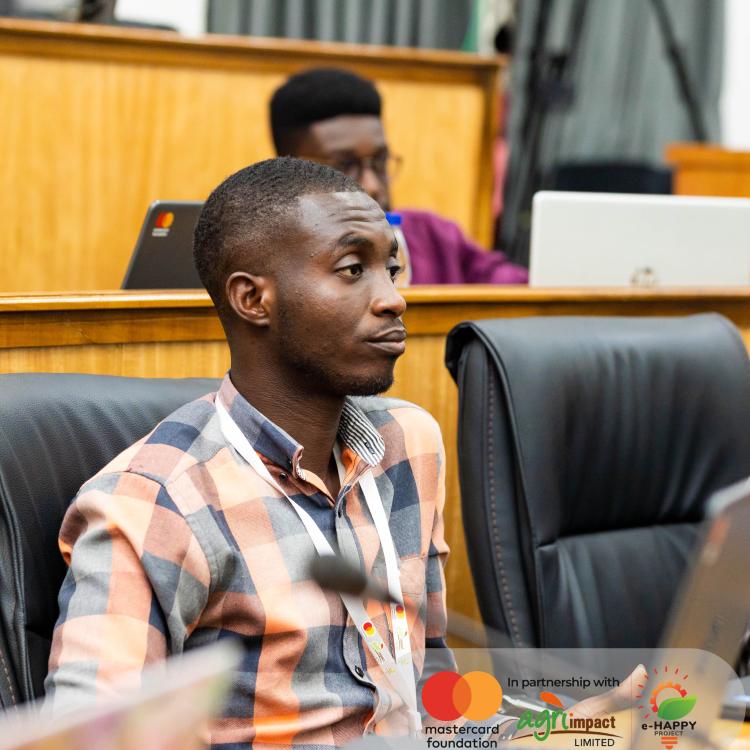The world of agriculture is changing, with technology, sustainability, and youth empowerment now at its core.
Spearheading this transformation is the E-HAPPY Project, a collaboration between Mastercard Foundation and Agri Impact Limited, with KNUST E-Learning Centre and iSchool Consult as implementing partners, now in its second cohort.
Through programs such as E-Agripreneur, Happy Tech Ambassadors, and COFED training, Cohort 2 participants are being equipped with the skills and resources to bring innovation to their local communities.
Bridging theory and practice in agriculture
Daniel Acquaye, CEO of AgriImpact Limited, said the program’s focus is on practical skills that participants can directly apply in their communities.
“We’re not interested in theory but solutions. Use this training to build something that changes lives and addresses practical needs in agriculture,” he advised.
This call to action brings out the importance of hands-on experience, from drone services and data analytics to agribusiness models that support real world application.
His words resonated with some participants, many of whom had already faced challenges in their farming ventures.
His message was particularly relevant for participants in Cohort 2, who were selected through a rigorous process and are expected to bring forward thinking, solutions oriented mindsets to the program.
For many participants, the training also means access to new farming methodologies that they may not have encountered.
Building a future for youth in agriculture
Juliana Asante Dartey, Deputy CEO of AgriImpact Limited, shared the broader vision behind the e-HAPPY project initiative.
“We are promoting production, productivity, and market access. Our work spans areas such as rice, soy and poultry production, with the goal of opening up opportunities for thousands of young people across the country.”
For Juliana, the training is about acquiring new skills and inspiring a new generation of problem solvers who are eager to address the challenges of modern agriculture.
Her words were a call to Cohort 2 participants to approach the training with passion, commitment, and a desire to create positive change.
The e-HAPPY project (Harnessing Agricultural Productivity and Prosperity for Youth) aligns with AgriImpact’s focus on expanding market access, improving agricultural productivity, and fostering community development.
This is achieved through different training components, including e-Agripreneur training that covers modern farming techniques, business planning, and effective use of digital tools.
Happy Tech Ambassadors are trained to promote new technologies that simplify production processes, while the COFED program encourages young people to cultivate entrepreneurial skills specific to agriculture.
Growth and community impact
Professor Eric Appau Asante, Director of the KNUST E-Learning Centre, mentioned the program’s potential during his address to the cohort.
“This program is a gateway to growth of skills, vision, and opportunities for young people to make meaningful contributions. We recognize how the blend of practical training and digital solutions is shaping the future of farming, " he said.
The KNUST E-Learning Centre has played a role in supporting this project, ensuring that participants have the technological resources they need to succeed.
Professor Asante believes this project is about knowledge transfer and nurturing a generation that will redefine agricultural practices in Ghana and beyond.
Through virtual learning platforms and access to digital resources, participants can revisit training materials, connect with instructors, and deepen their understanding of topics.
Embracing digital solutions in agriculture
Project lead, Professor Nana Ewusi Mensah mentioned the e-HAPPY program’s emphasis on technology in agriculture makes known the sector’s shift towards digitization.
“The inclusion of digital tools, such as mobile apps for farm management, drones for crop monitoring, and data analytics, shows the role of technology in transforming agricultural processes,” he mentioned.
By incorporating these tools, e-HAPPY is educating participants on traditional farming methods and equipping them with digital skills that can improve productivity and expand market reach.
An example of this is the training on drone technology, which will soon emerge as a game changer in agriculture.
Through this training, participants can learn how drones can be used for agriculture, allowing farmers to monitor crop health, assess soil quality, and even manage irrigation systems.
For many young people in Ghana, agriculture has not always been seen as a viable career path.
However, Mastercard Foundation partnership with Agri Impact Limited is working to change that narrative by showing young people the opportunities that agriculture offers, particularly when combined with technology and entrepreneurship.


